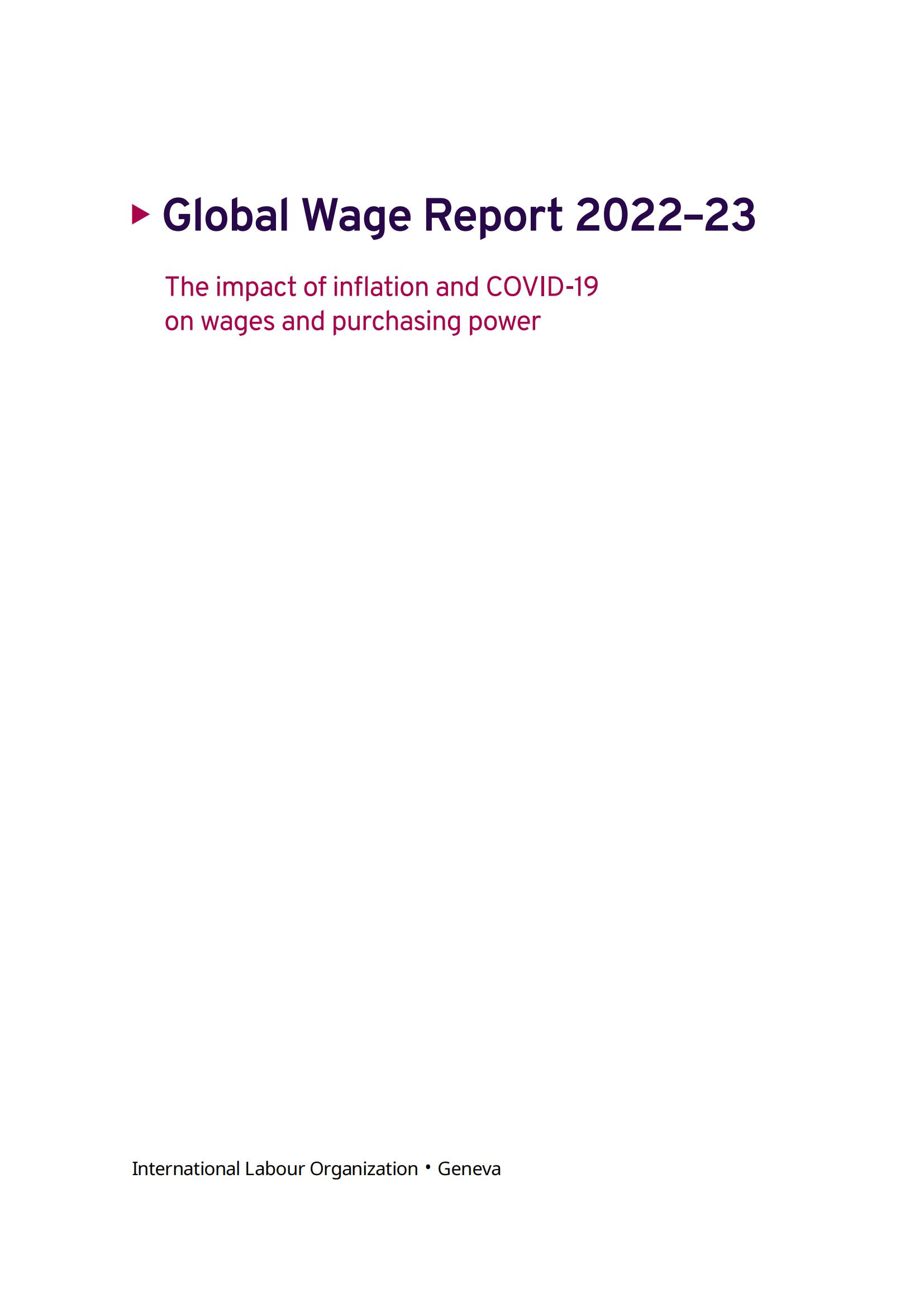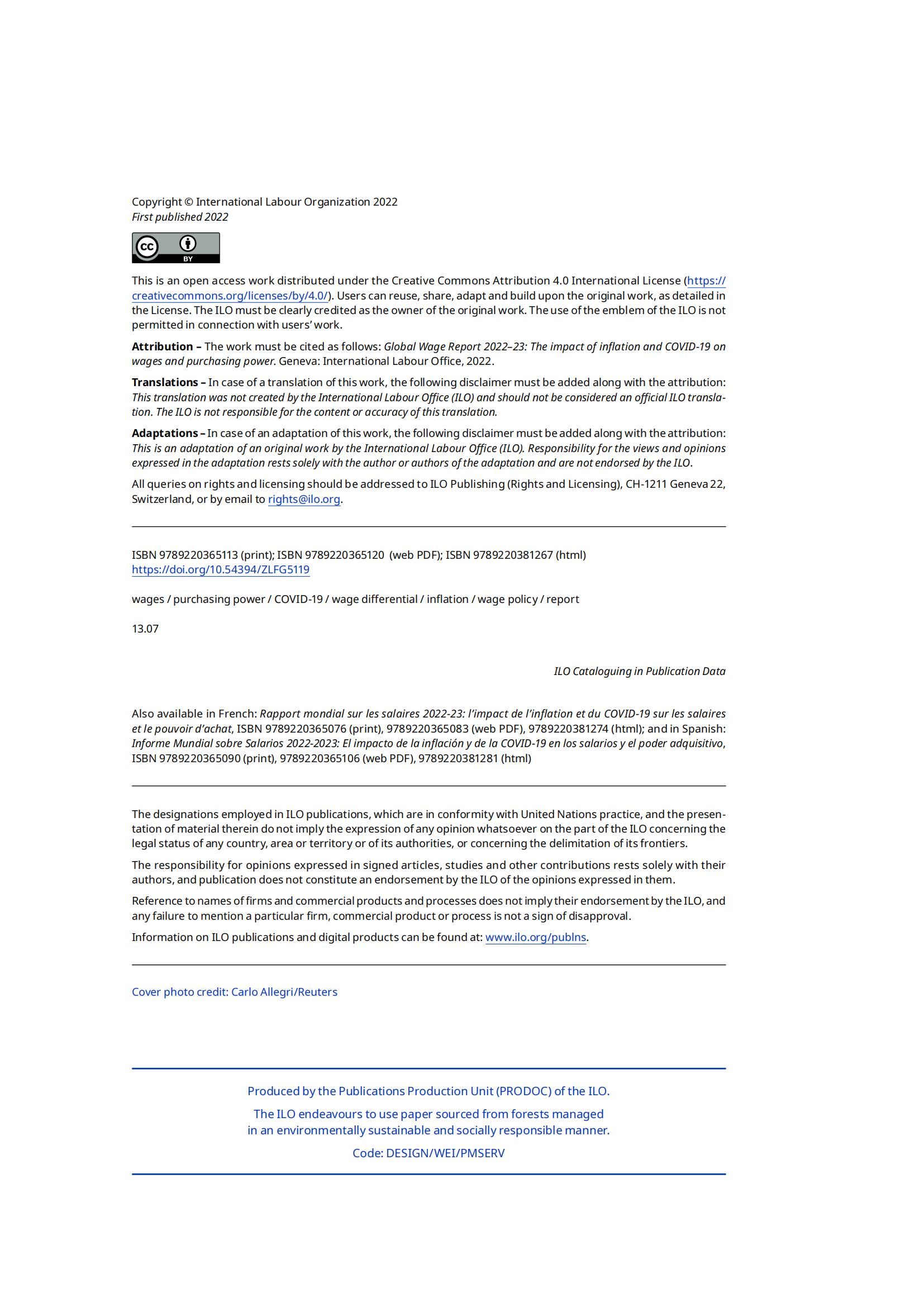This year’s ILO Global Wage Report,the eighth in the series,presents an in-depth empirical analysis of how concurrent crises-the COVID-19 pandemic followed by the cost-of-living crisis-have impacted on wages and purchasing power across countries and regions. The report shows that, for the first time this century,global real wage growth has become negative while real productivity has continued to grow.Indeed,2022 shows the largest gap recorded since 1999 between real labour productivity growth and real wage growth in high-income countries.While the erosion of real wages affects all wage eamers, it is having a greater impact on low-income households which spend a higher proportion of their disposable incomes on essential goods and services, the prices of which are increasing faster than those for non-essential items in most countries.
expectedtocontinue and lead to a fall in aggregate demand. This would increase the probability of a deeper recession,a risk that is already worsening due to the restrictive monetary policies adopted by central banks in their efforts to bring down inflation.This in tum wouldendanger the economic and employment recovery, further increasing inequalities and fuelling social unrest.
In this time of growing social and economic uncertainties and insecurity, it is vital to rebuild and strengthen people’s sense of social justice and social cohesion. The ILO Constitution emphasizes that “universal and lasting peace can be established only if it is based upon social justice” and calls for “equal remuneration for work of equal value” and “policies in regard to wages and earnings (…) to ensure a just share of the fruits of progress to all”. The last chapter in this report suggests a series of policy measures that could serve to shape ade quate wage policies and therefore contribute to enhancing people’s sense of social justice while reducing inequalities in the world of work. But where as adequate na tional wage policies can strengthen labour market outcomes and economies, no community or country can resolve alone the multiple crises of a global nature. More than ever, there is a need for a global response to humanity’s common and pressing goals. As the United Nations Secretary-Generalstates in his re port,Our Common Agenda:”Humanity’s welfare-and indeed, humanity’s very future-depend on solidarity and working together as a global family to achieve common goals.”Shaping coherent palicy responses within the multilateral system is indispensable to making progress toward more inclusive,resilient and equitable sodeties.In a globalized economy, appropriate and timely wage policies that leave no one behind are an intrinsic part of such policy responses.
The decline in real wages has come on top of significant wage losses incurred by workers and their families during the COVID-19 crisis. Using quarterly data,the report finds that the key factor behindthe decline in the total wage bill, particularly during 2020 and the first quarter of 2021,was the loss in employment.Low-wage eamers,workers in the informal economy and women wage eamers werethegroupsthatsufferedmostFurthermore, during the harshest months of the pandemic,the total wage bill declined most at the lower end of the wage distribution. Households that were forced to go into debt to make ends meet during the COVID-19 crisis now face the double burden of repaying their debts at higher interest rates while eaming lower incomes. Overall, the empirical evidence in the report points to the likelihood of increased income inequality both between and within countries.
In the absence of countervailing policies, the deterioration of workers’ real incomes can be



本文来自知之小站
报告已上传百度网盘群,限时15元即可入群及获得1年期更新
(如无法加入或其他事宜可联系zzxz_88@163.com)
